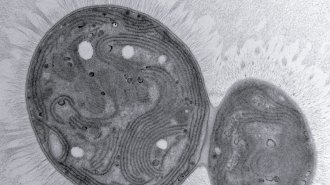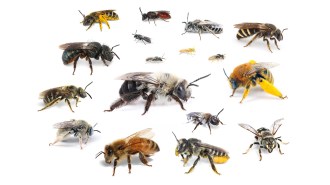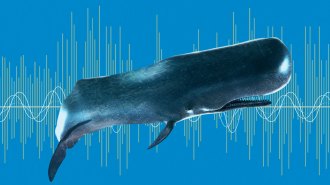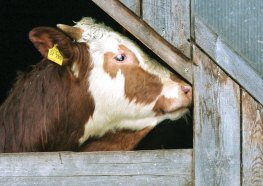Uncategorized
-
 Particle Physics
Particle PhysicsAccelerated muons bring next-gen particle colliders closer to reality
Muon colliders could slam the subatomic particles together in hopes of unlocking physics secrets. Giving muons a speed boost is a crucial step.
-
 Health & Medicine
Health & MedicineA twisted protein sheds light on chronic wasting disease in deer
The detailed structure of a misfolded protein from a diseased deer could help explain why the disease hasn’t made the leap to humans.
-
 Planetary Science
Planetary ScienceUranus may have looked weird when NASA’s Voyager 2 flew by
A solar wind event days before the NASA probe flyby in 1986 may have compressed the planet’s magnetosphere, making it look odder than it usually is.
-
 Genetics
GeneticsA common drug may help treat a rare genetic disease
Ibuprofen counters problems caused by mutations in the MAN1B1 gene, fruit fly tests show. Early results in three children are ”fairly positive.”
-
 Environment
EnvironmentFire-prone neighborhoods on the fringes of nature are rapidly expanding
The transition zone where unoccupied wildlands meet developed areas increased globally by about 35 percent from 2000 to 2020.
By Nikk Ogasa -
 Particle Physics
Particle PhysicsAntimatter could travel by truck, a test with protons shows
A special particle trap designed to fit in a truck let researchers haul 70 protons across the CERN campus. Antiprotons may be next.
-
 Astronomy
AstronomyA cosmic census triples the known number of black holes in dwarf galaxies
The DESI survey reveals that active black holes in small galaxies are common. The findings may help reveal how the two cosmic bodies evolve together.
-
 Climate
ClimateMeet Chonkus, the mutant cyanobacteria that could help sink climate change
The mutant of the lab-studied Synechococcus elongatus has traits good for ocean carbon storage.
-
 Animals
AnimalsBees flying near cars are dying by the millions, a roadkill study suggests
Scientists in Utah put sticky traps on car bumpers to tally how many bees get hit on a typical trip. The broader toll is immense, they estimate.
By Amanda Heidt -
 Astronomy
AstronomyA star winked out of sight. Could it be a ‘failed supernova’?
The dramatic dimming of a star in the nearby Andromeda galaxy could mark the birth of a black hole.
-

For deep-diving whales, plastic garbage may ‘sound’ like food
Experiments show that the acoustic signature of plastic and prey is similar. That may confuse whales that use echolocation to hunt.
-
 Health & Medicine
Health & Medicine‘The Power of Prions’ explores misfolded proteins’ role in brain diseases
Michel Brahic’s new book spotlights prions’ role in diseases such as Alzheimer’s and Parkinson’s.
By Meghan Rosen